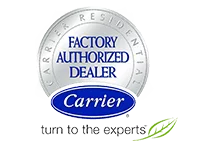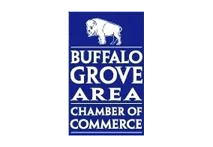Our Blog
-
How to Optimize Thermostat and Humidity Settings for Late Summer Comfort
The blog reminds homeowners to prepare their HVAC systems for the transition from summer to fall with a few key guidelines.READ MORE -
Will Low-Flow Toilets Work In An Older Home?
The blog addresses the considerations of installing low-flow toilets in older homes, focusing on the importance of the waste drain pipe slope. It explains that the slope should be within a specific range to ensure proper waste removal, highlighting potential issues such as clogs if the slope is not optimal. Additionally, it provides tips for homeowners, including inspecting the waste and sewer lines before installation and checking for standing water in the drain during maintenance.READ MORE -
Why Does Your Toilet Keep Running? Causes and Fixes
This post discusses water leaks beyond the typical leaking faucet, focusing on washing machine hoses, leaking toilets, and water heater leaks. It highlights the potential damage caused by burst washing machine hoses and the importance of regular inspection and replacement. Additionally, it provides simple tests for detecting leaks in toilets and emphasizes the need for maintenance to prevent water heater leaks due to rust and corrosion.READ MORE -
What Is a Toilet Wax Ring and When Should You Replace It?
The blog discusses the importance of the toilet wax ring in preventing water leaks around the base of the toilet. It explains that wax rings are resilient and mold-resistant, but they should be replaced whenever the toilet is removed or if there are signs of wobbling or changes in floor height. Additionally, it advises inspecting the subfloor for water damage and making any repairs before reinstalling the toilet.READ MORE -
Electrical Extension Cords Safety Tips
To reduce risks with electrical cords: avoid overloading or placing them in water/snow, never use them as permanent wiring, avoid running them through walls or ceilings, and ensure they're rated for indoor/outdoor use. Don't use damaged cords, match wattage ratings, and don't modify plugs. Choose cords approved by testing labs like UL or CSA, and consider adding outlets if relying heavily on extensions.READ MORE -
Do Air Ducts Need to be Cleaned?
If your home is constantly dusty, has lingering odors, or temperature variations between rooms, it could be due to pollutants in your air ducts. ABC offers professional duct cleaning services to remove dirt, mold, and other contaminants, ensuring fresher, cleaner air for your family. If you suffer from allergies or respiratory issues, consider scheduling a duct cleaning to improve indoor air quality.READ MORE -
When to Upgrade Your Home’s Electrical System: Signs and Solutions
If your house is over a decade old, it may be time for major electrical upgrades to accommodate modern power-hungry devices like home theater systems and computers. Signs of an overloaded electrical system include flickering lights, dimming, and tripping circuits. Contact ABC's expert electricians for an inspection and upgrades to ensure safety and efficiency.READ MORE -
How to Save Money on Air Conditioning Costs: Spring and Summer Tips
To reduce your air conditioning bill, aside from adjusting the thermostat, consider cleaning your air conditioner coils to improve efficiency, using ceiling fans to raise the thermostat setting without sacrificing comfort, installing programmable thermostats to regulate temperatures, avoiding oven use on hot days, and ensuring bathroom and kitchen fans are vented outside.READ MORE -
How to Reduce Standby Power Consumption and Prevent 'Vampire' Energy Loss
"Vampire" energy loss occurs when electronic devices consume electricity while plugged in but not in use, costing households up to $165 to $440 per year. To limit this standby power loss, unplug devices when not in use, use power strips to turn off multiple devices, utilize timers for short-term devices, activate energy-saving settings, and choose ENERGY STAR-rated appliances designed to minimize idle energy use.READ MORE -
Understanding Furnace Efficiency: How AFUE Ratings Impact Your Heating Costs
Furnace energy efficiency is assessed by the AFUE standard, which measures the percentage of energy input converted to heat. The minimum AFUE for most furnaces is 80%, but high-efficiency models operate at 90-98.5% efficiency by utilizing advanced technology like sealed combustion chambers and condensing units.READ MORE
Our Promises To You
-

Convenient For You
We Work on Your Schedule
-

Background Checks
We do Drug Tests And Background Checks Before Hiring
-

No Need For Stress
Get ABCs Worry-Free Guarantee at No Cost
-

No Surprises
Pricing is By the Job, Not the Hour














